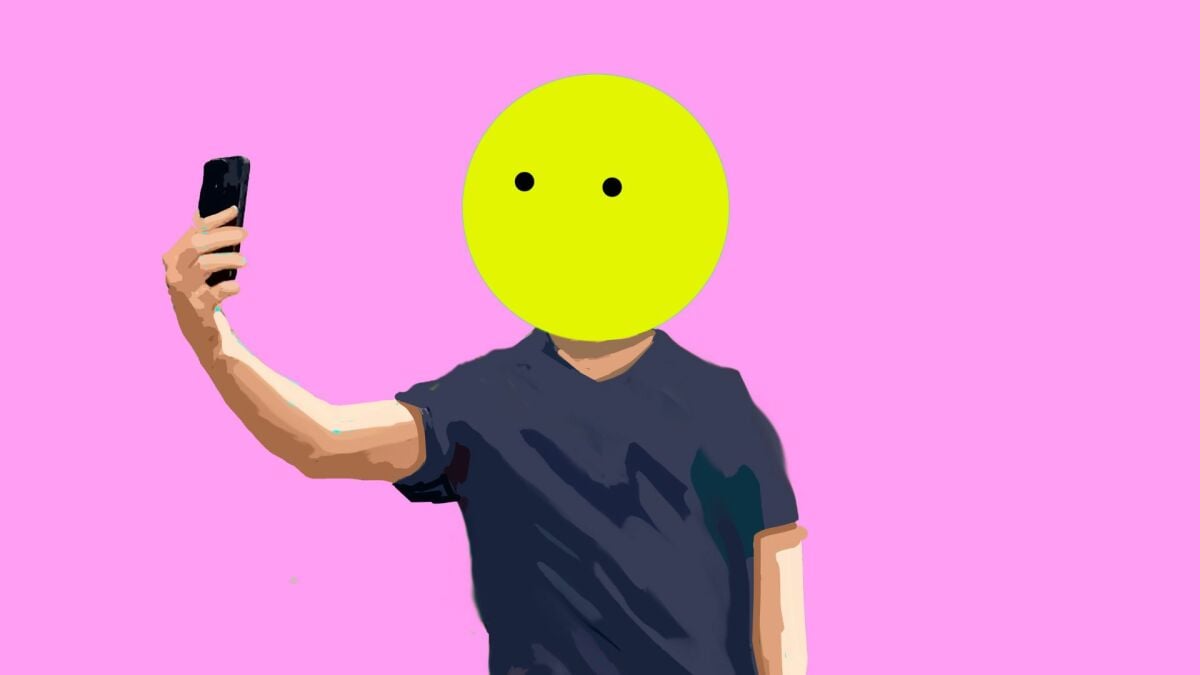Entertainment
Why have some people stopped using BeReal?

In 2022, it seemed BeReal was the app of the moment(Opens in a new tab). Founded in 2020 by French entrepreneurs Alexis Barreyat and Kévin Perreau, the app swelled in success(Opens in a new tab) last year, reaching over 50 million downloads(Opens in a new tab) by October and being crowned the iPhone app of the year(Opens in a new tab). Other social apps were scrambling to replicate BeReal’s premise, and continue to do so(Opens in a new tab).
But the precarity of BeReal was quickly acknowledged online(Opens in a new tab), too. For one thing, “authenticity” and social media are at natural odds with one another. For another, BeReal had the advantage of emerging at a time when people were tiring of other community-based apps for that very reason. This gave the app an innate sense of “novelty”, as Mashable’s Elena Cavender wrote in December, but its usage has ultimately evolved to mimic that of other content-based social apps. “BeReals became the new version of the selfie, with people clamoring to get memorable BeReals at concerts and with celebrities,” she wrote. “It became a new way to go viral on other, more monetizable platforms.”
This is just one development that has led to a chunk of users skipping BeReal’s daily notification – or abandoning the app entirely(Opens in a new tab).
At its peak in September 2022, BeReal saw 12 million monthly downloads. This January, that fell to 3.3 million, according to data from Business of Apps(Opens in a new tab) and Apptopia(Opens in a new tab). More indicatively, perhaps, is the drop in daily active users: this number has nearly halved(Opens in a new tab), from 20 million daily users in October 2022 to 10.4 million now.
Amber hasn’t stopped using BeReal entirely but her use has waned as a result of the app’s very foundation: asking people to document what they are doing, authentically, and in the moment.
“I feel like BeReal is like the ultimate manifestation of ‘look, look, see what I am doing right now!'” she tells Mashable. “It’s not like I don’t adore my friends and have an interest in my friends’ day to day activities. It’s because I genuinely don’t think we as people were made to see, let alone want to see, what other people are doing when they aren’t with us, friends included.”
She isn’t the only one. Many users, like Amber, still use the app but less than they once did. Kayla says she uses the app “sporadically”, but does occasionally dive in for the purpose of connecting with friends.
“I miss a lot of days, but use it to check in on close friends I don’t typically talk to, like friends from college, friends I’ve moved away from, people like that,” she says.
Another once active user, Meg, says she is using it less since the summer, too: “I mean, how many times can I take a photo of me at my desk doing boring work?”
Meg’s qualm – directed at the motony and lack of variety in daily posts – is shared. Aryaman says he stopped using it because there was little engagement to be had. “There aren’t too many conversations to start based on someone’s work screen and cup of coffee,” he says.
Other reasons for not using the app vary from irritation at the daily notification to “there are too many different social apps” to keep track of. A majority, however, rejected BeReal for the pressures it posits. As mentioned, the app’s promise of authenticity was contentious from the start. But users recognise that others don’t always use the two-minute window BeReal sets for posts, instead waiting for a moment when something more exciting or photo-worthy was occuring.
“There was a lot of social pressure to be posting things that were not real,” Michael, a once-avid user of the app, says. “The app is conducive to showing off that you have a more enriched lifestyle or patterns, when realistically, that’s not always the case.”
Amelie feels similarly, telling Mashable, “I realised it wasn’t the ‘live in the moment’ version of social media, but just another way to superficially document your life with your friends. It had become status and image based.” Rohan, too, says, “It lost all its beauty. People don’t use it to document their real lives, they just wait until they are doing something interesting.”
These criticisms of BeReal are not unique to the app, but akin to any objections directed at social media as a whole. The only possible difference is that BeReal positioned itself as an alternative to the glossy images of Instagram and the commodified content of TikTok. The app has naturally been transformed as a consequence of rooted behavior on social media and habits that are hard to shake.
All of this is not to say that BeReal has tumbled into insignificance. In October, the app’s valuation was somewhere around $600 million(Opens in a new tab). The insistence of other apps to imitate BeReal is also a testament to the fact that the startup was onto something, whether that’s the timeframe it provides for posts or the dual camera concoctions it delivers.
In response to Mashable, BeReal passed along a link to their Press page(Opens in a new tab), which reads:
We want for ourselves what we want for our users – not to chase fame or the spotlight or to be tethered to metrics like the number of followers or number of downloads. We don’t share our numbers, even though we see lots of rumored estimates online. In the spirit of authenticity and veracity, we’ll say to take these figures for what they are…estimates :).
Those who still use the app are loyal to it, with some explaining that taking a daily post is now just a habit, while others go as far to say BeReal is their favorite of social apps. Amongst these users are those who perceive BeReal as a sort of journal, or a way to document daily life in mere seconds.
“It’s more of a little diary entry for me to remember each day. It’s nice looking back on my days even if they are monotonous and boring,” says Ryan. Sofia also says she likes to go back and see what she was doing over the course of months: “the real draw, really, is that facilitated record and memory-keeping.”
The decline of BeReal, whether momentary or not(Opens in a new tab), underscores a greater dissatisfaction: with apps, with influencers, and with any sort of glorified content. This is a larger challenge the likes of Instagram and TikTok will have to reckon with, too. A reinvention of sorts may be required of them all – for BeReal, it’s unclear what this could look like.
-

 Business6 days ago
Business6 days agoTikTok Shop expands its secondhand luxury fashion offering to the UK
-

 Business5 days ago
Business5 days agoUnitedHealth says Change hackers stole health data on ‘substantial proportion of people in America’
-

 Business5 days ago
Business5 days agoMood.camera is an iOS app that feels like using a retro analog camera
-

 Business4 days ago
Business4 days agoTesla’s new growth plan is centered around mysterious cheaper models
-

 Business3 days ago
Business3 days agoXaira, an AI drug discovery startup, launches with a massive $1B, says it’s ‘ready’ to start developing drugs
-

 Business4 days ago
Business4 days agoTwo widow founders launch DayNew, a social platform for people dealing with grief and trauma
-

 Entertainment4 days ago
Entertainment4 days agoTesla’s in trouble. Is Elon Musk the problem?
-

 Entertainment6 days ago
Entertainment6 days agoFurious Watcher fans are blasting it as ‘greedy’ over paid subscription service




























